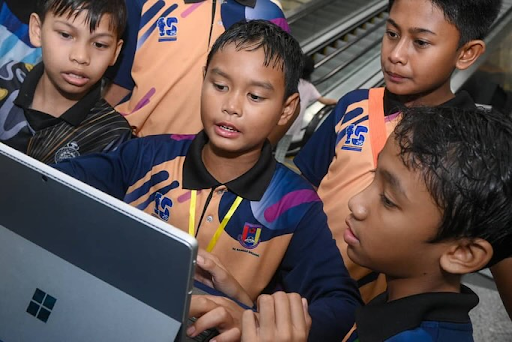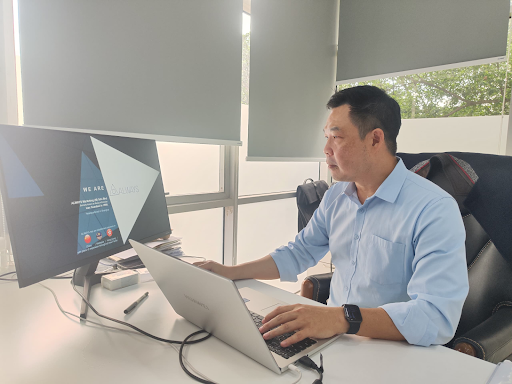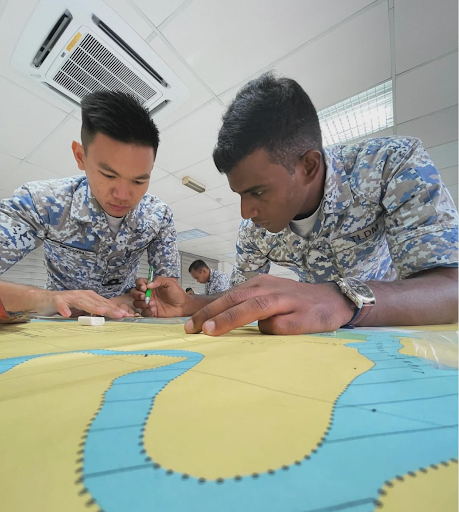The 5G Digital Infrastructure has been seen as a catalyst to boost all industries in Malaysia. The 5G connectivity, coupled with Big Data, the Internet of Things (IoT) and artificial intelligence (AI) will propel the country well into the age of the 4th Industrial Revolution. Malaysia’s 5G speed ranks as one of the top 3 fastest in the world, according to OpenSignal. The high speed and the wide penetration area are part and parcel of realising the concept of Ekonomi MADANI’s vision - to build a high-value economy based on high quality productivity and efficiency.
But, as we move forward towards 2025, four years after the rollout of 5G, businesses and individuals alike will ask - How will Malaysia’s latest Budget unlock new avenues for growth? At the heart of this inquiry is the government’s commitment to digital transformation and expansion of 5G infrastructure to bring seamless connectivity to industries and consumers alike.
However, with the digital divide still existing between urban and rural areas, the government remains committed to closing that gap by promising wider coverage. Communications Minister Fahmi Fadzil said a total of 7,191 5G sites have been developed nationwide as of September 2024, with 564 sites in Sabah and 551 in Sarawak. He also said that high-speed 5G internet coverage stood at 81.9 percent in populated areas across the country, and the coverage will only increase especially with the introduction of the second 5G network.
The second 5G network, recently announced by Prime Minister Anwar Ibrahim, promises to increase competitiveness within the telecommunications sector, which can lead to lower prices and better service, and establish redundancy in the 5G infrastructure, which is to resolve issues that emerged in the first 5G network. With Malaysia helming the ASEAN Chairmanship in 2025,, the country’s 5G infrastructure will be a hallmark as a leading 5G network performer in the region, especially as 5G technology is growing rapidly in ASEAN countries such as Thailand, Indonesia, Vietnam and Singapore.
Anwar also said in his Budget speech that the Malaysian Communications and Multimedia Commission (MCMC) will improve internet access in public universities, schools, military camps and Majlis Amanah Rakyat (MARA) institutions with the allocation of RM120 million.
5G - Transforming Industries and Individuals alike
Transforming Education and Bridging Gaps in Rural Areas

“For instance, in the education sector, 5G connectivity has enabled enhanced e-learning tools such as seamless connectivity to smartboards or virtual classrooms, granting students real-time access to digital resources and expert guidance regardless of their location. This accessibility ensures that students in rural areas can participate in interactive, high-quality lessons and even attend virtual lectures by experts, bridging educational gaps and levelling the playing field,” said Nur Alia, a primary school educator.
Leveraging 5G Technology for Business Optimisation

Patrick Goh, Always Marketing Sdn Bhd Managing Director said that 5G technology offers numerous benefits from a business perspective. These include reduced latency and businesses can streamline operations, optimise workflows, and make quicker, data-driven decisions.
He highlighted that the company’s RetailAIM platform is a prime example of how 5G technology can benefit businesses, particularly in retail management. Using 5G’s connectivity, the company was able to efficiently capture field data and manage field promoters and merchandisers from a distance away, showcasing 5G’s reliability of providing real-time updates, providing stakeholders using a single mobility platform for better collaboration and insights.
Enhancing Military Operations: The Role of 5G in ECDIS for the Royal Malaysian Navy

“The integration of 5G technology into Electronic Chart Display and Information Systems (ECDIS) marks a significant advancement in military operations. With its high-speed connectivity, the military can leverage real-time data transmission for navigation, weather updates, and situational awareness, improving decision-making during operations. It also allows for faster updates to digital maps and chart data, providing better accuracy and responsiveness in dynamic environments,” said Denan, military officer, TLDM.
As the 5G network continues to grow, its influence on everyday life and industrial advancements will reshape Malaysia’s digital landscape, prompting more businesses to undergo digital transformation, and propel the country’s economy to greater heights. With 5G’s technology and expanding digital infrastructure, the country will experience higher efficiency, higher productivity and higher economic contribution. This is in line with Ekonomi MADANI’s vision - that a larger digital economy will drive bigger contributions to the country’s GDP, which ultimately leads to higher wages for the rakyat, leading to better quality of life.
The views expressed here are those of the author/contributor and do not necessarily represent the views of Malaysiakini.
Interested in having your press releases, exclusive interviews, or branded content articles on Malaysiakini? For more information, contact [email protected] or [email protected].

